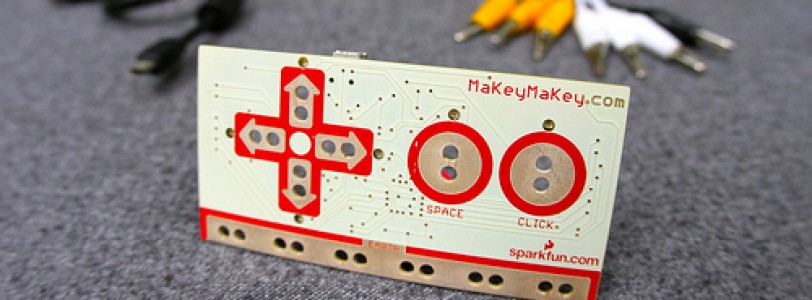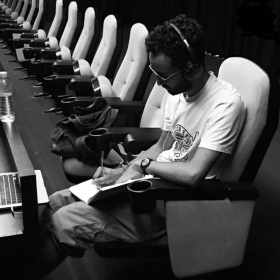We realise that this activity isn't new and that many Arts Award centres have been championing digital for a long time as just another great tool in their arts tool box, but it's time that we promote the value of digital technology within Arts Award.
Generally we're finding that there are two main areas of opportunity for combining Arts Award and digital technology:
- Using digital technology to enhance the audience experience - for example when you are visiting a museum or gallery
- Using digital technology to create art
To explain why all this is important to young people today, it's useful to take a look at some recent research carried out by O2. They discovered that by 2017 the UK needs to have 750,000 digitally skilled workers in order to power its economy, they also found out that more than a fifth of these jobs are suited to digitally literate young people. Considering that at the moment 40% of all unemployed people in the UK are aged 16-24, it seems there's an opportunity here for more young people to be gaining digital skills that will help them to find future work.
Nesta's Young Digital Makers report published in 2015 tells us that 82% of the young people surveyed said they are interested in digital making, but only half of these are actively doing so more than once a week. Through Arts Award young people can be supported to develop their skills as digital makers whilst gaining a great qualification.
We also know that last year, Computing at school showed the biggest gender gap between boys and girls completing A-Levels. Of all those gaining Computing A-Level, only 8.5% were girls. So promoting digital technology as a pathway for Arts Award is an opportunity for more girls to get involved as well as for boys to develop greater digital skills too.
So what do we actually mean by digital makers? The maker movement is a technology based culture that is closely associated with DIY culture and hacking. When we talk about hacking, we don't mean computer crime, we're talking about programming and using other digital media to creatively solve problems and tinker with devices. Digital making might include coding, electronics, robotics, 3D printing, digital music making and other creative digital skills.
Anyone who has experienced Arts Award will agree that it's an accessible qualification for all young people. In the digital world there are so many young people taking part with different abilities and interests. They range from award winning tech entrepreneurs like Ben Towers who started his own digital media agency at the age of 11, to those preferring to use digital technology more socially to communicate with friends, trying their hand at being vloggers or competing through online gaming. All of these young people can achieve Arts Award, shaping their activity to their own digital preferences and skills.
These days it seems that there are opportunities for young digital makers popping up everywhere. These range from joining one of more than 3,700 Code Clubs set up in the UK for 9-11 year olds to learn how to code using Scratch, Python and html, to taking part in digital activities in some unexpected venues like libraries running projects under their new Code Green learning offer.
This summer, the BBC are distributing free pocket-sized codeable computers to every year 7 student or equivalent. The BBC micro:bit has motion detection, a built in compass and Bluetooth technology. It can be connected to other devices and is a great starting point to digital learning. Here at Arts Award we were lucky to get our hands on some micro:bits to run a Bronze Arts Award project. Ten students at St Anselms Catholic School in Canterbury took part, learning how to code for the micro:bit to develop some creative projects and teaching their class mates their new skills.
Micro:bit project plans ranged from designing a set of bunting using fabric with micro:bits embedded inside to spell out the letters HAPPY BIRTHDAY on each flag in LEDs, to creating a drum with visual recognition of the note being played for people with a hearing impairment. We'll be producing more information soon to help you create a digital arts project using the micro:bit alongside Arts Award.
We're delighted to tell you that Arts Award will be returning to MozFest this year with the Arts Award Voice team. The fantastic annual festival of the web and all things digital hosted by the Mozilla Foundation will take place in London on 29 and 30 October. This year we're excited to be co-producing the digital arts and culture zone in partnership with the Tate, welcoming over 2,000 visitors across the weekend. We'll be creating Arts Award pathways for young festival goers to follow both on the weekend and in the lead up to the Autumn. With youth tickets at just £3, it's an ideal opportunity for you to be immersed in over 200 different sessions featuring digital technology, digital artists and arts organisations! We'll have more information soon about how to get involved.







Using code and tech in Arts Award is a great way of making these skills commonplace and accessible to boys and girls! It's the language of the future!